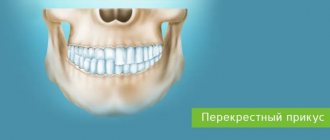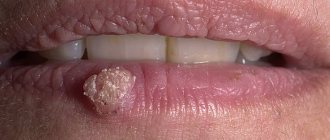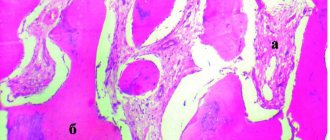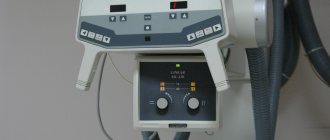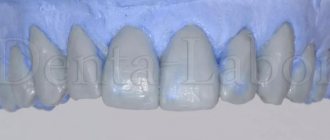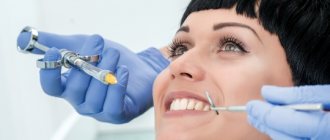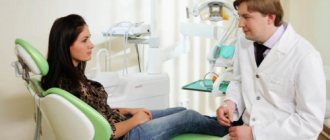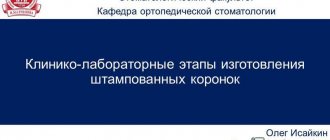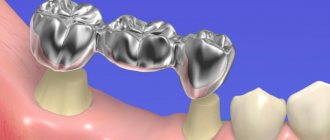Often, the dentist prescribes antibiotics to the patient after the removal of a wisdom tooth in order to avoid unpleasant consequences or complications. The main indicators of antibiotic therapy include the development of the inflammatory process in the formed hole. More information about the choice of antibacterial drugs will be discussed in this article.
Antibiotics after wisdom tooth removal
Is it worth taking them?
Taking antibacterial drugs after removing the figure eight is necessary to relieve pain or at least to minimize it. Antibiotics are also necessary to prevent the development of the inflammatory process. Typically, antibiotics are used in the form of solutions, injections, ointments or tablets. They resort to their use only in extreme cases, when conventional drugs are unable to cope with inflammation or suppuration.
Pain after wisdom tooth removal
Antibacterial drugs are prescribed in the following cases:
- if the wall of the hole formed after tooth extraction is damaged and this can provoke an infectious inflammation that will eventually affect most of the bone;
- care of the hole after removal was insufficient. That is, ignoring antiseptic solutions for mouth rinsing can lead to the fact that small particles of food can accumulate in the hole, which is why pathogenic bacteria will multiply there;
- with a weakened immune system, the stress that occurs during tooth extraction can reduce the patient’s oral defense against infection;
- failure of the blood clot that closes the entrance to the formed hole can cause the infection to spread throughout the body.
Wisdom tooth removal is perhaps one of the most difficult dental operations, so doctors often prescribe various antibiotics to patients to relieve painful symptoms. It is worth noting that antibacterial drugs are used not only after the procedure, but also before it.
Wisdom tooth removal
The main factors why doctors prescribe antibiotics after tooth extraction:
- when there is a possibility of gumboil or pustules developing in the patient’s gums after removal surgery;
- if the integrity of the gum tissue has been compromised;
- when bleeding or other complications appear that cannot be eliminated without the use of antibacterial drugs;
- the presence of one or more chronic diseases;
- weak immunity.
If at least one of the above factors is present, the doctor resorts to the use of antibiotic drugs. But these are not all the reasons. There are other indications for the use of antibiotics. More on this below.
Antibiotics
Contraindications
Antibacterial drugs are prescribed exclusively by a doctor, as drugs in this group have a wide range of contraindications. This takes into account the physiological characteristics of the body, the presence of chronic diseases and the age category of the patient.
Antibacterial drugs should not be used in the following cases:
- Each antibacterial drug has its own list of main contraindications and features of its use.
Dysfunction of the digestive system.
- Breastfeeding period.
- During gestation of an intrauterine fetus.
- Individual intolerance to the drug.
- The presence of allergic reactions to the components of the antibiotic.
- Kidney failure.
- Liver diseases of any etiology.
- Age category up to 12 years.
- Diabetes mellitus of any type.
- Arterial hyperplasia.
Each antibacterial drug has its own list of main contraindications and features of its use. Therefore, before using it, it is recommended to study the annotation for it.
Indications for use
If a secondary inflammatory process develops, it is, of course, necessary to take antibiotics after wisdom tooth removal. We are talking about damage to the periosteum, trigeminal nerve, alveolar ridge of the patient's jaw and socket tissue, which can cause serious complications.
How to take antibiotics after tooth extraction
These complications primarily include:
- alveolitis The main symptom of this disease is 2-day pain in the area of the socket that appears, general weakness of the body and fever;
- periodontitis. Occurs due to an inflammatory process that affects the periodontal gum tissue;
- periostitis. A fairly serious disease that occurs as a result of inflammation of the periosteum of the jaw. Often the disease is accompanied by flux, that is, swelling of a person’s facial tissues;
- osteomyelitis. A dangerous complication after tooth extraction, accompanied by the appearance of fistulas through which purulent mass from the patient’s gums comes out.
Flux on the gum
On a note! For patients suffering from problems with blood clotting, cancer and high blood sugar, antibiotics must be prescribed. This is due to the fact that the weakened immune system of patients is not able to fight the development of infection.
How to relieve tooth inflammation
If inflammation of the root does not give you peace, then it is best not to delay a visit to the doctor. Traditional medicine at home is not intended to treat such a complex disease - we can say with confidence that self-medication will not bring the expected results. Relieving painful spasms and swelling with herbal infusions will only bring calm to the patient for a while, but the inflammatory process will develop and return after a while with more severe consequences.
The following will help to tame the pain for a while:
- Painkillers. They will help you endure acute pain, which is not advisable to endure, but it is best to drink them 12 hours before going to the doctor so that he can make a correct diagnosis;
- To relieve pain, you can rinse your mouth several times with a special solution, mixing a teaspoon of salt and soda in a glass of water, adding four drops of iodine;
- Using calendula tincture, you can relieve inflammation, mix a tablespoon of tincture with a glass of water, rinse your mouth up to 5 times;
- One of the modern recipes for relieving toothache: place two drops of propolis tincture on cotton wool and apply to the painful tooth, the pain should subside within an hour;
- Boil one teaspoon of chamomile and oak bark in a liter of water, leave for 20 minutes, cool slightly, rinse for inflammation;
It is important to remember that applying warm compresses to a sore spot is strictly prohibited! Rinsing and taking painkillers cannot be considered treatment, because even if you managed to relieve the pain, the inflammatory process has not been stopped, it will proceed unnoticed and will resume with renewed vigor, the consequences of which can be unpredictable.
What drugs do doctors prescribe?
Many different drugs offered by modern medicine are used in dental practice as a post-operative intervention. People have most likely heard about many antibacterial drugs from advertising, but not all of them can help. Below are the drugs that doctors most often recommend using after removal of the figure eight.
- Wisdom tooth hurts
Table. Review of the most common drugs.
| Name of the drug, photo | Description |
| Flemoxin | An effective drug with a wide spectrum of action, the active substance in which is penicillin. The use of this antibiotic will relieve inflammation and reduce the patient’s body temperature. The duration of treatment and dose are determined only by the attending physician. |
| Lincomycin | Used in dentistry to treat many diseases. Often used after wisdom tooth extraction. It is not recommended to use Lincomycin in patients suffering from liver or kidney disease, or during pregnancy. |
| Sumamed | An antibacterial drug available in the form of tablets, syrup or capsules. Has anti-inflammatory and bactericidal properties. The product has some contraindications. For example, it should not be taken by patients who have individual intolerance to certain components. Side effects are extremely rare. |
| Amoxicillin | An excellent anti-inflammatory drug that prevents the development of infection in the body. It is used in medicine as a broad-spectrum agent, so it can be prescribed not only to adult patients, but also to children. |
| Amoxiclav | A combination drug that doctors prescribe to patients of all age groups. The active substance is penicillin, so before using the drug you need to check whether the patient is allergic. It is not recommended to take Amoxiclav for patients suffering from renal failure. |
| Azithromycin | An antibacterial drug used in the treatment of large areas of inflammation. If you are highly sensitive to individual components of this product, it is not recommended to use it. The same applies to patients suffering from problems with the kidneys and liver. |
All of the above drugs have an analgesic and anti-inflammatory effect on the body. These are potent drugs, so you should not take them on your own. Otherwise, serious complications may arise in the form of other pathologies.
View of the socket of an extracted wisdom tooth
Video: Antibiotics after tooth extraction
Side effects
Long-term use of antibiotics may cause side effects
Their manifestation can be triggered by incorrect selection and prescription of the drug, as well as if the rules for its use have been violated.
The pharmacodynamics of antibiotics is based on the absorption of the active substances of the drug by the intestines, followed by its distribution throughout all tissues of the body.
The active substances of the antibiotic undergo breakdown in liver cells and, together with bile, feces and urine, are excreted from the body.
With long-term use of the drug, the following side effects may occur:
- Development of dysbacteriosis or candidiasis.
- Attacks of nausea.
- Vomiting.
- Inflammatory processes in the oral cavity.
- Allergic dermatitis on the skin of the body and face.
- Minor vascular bleeding in the oral cavity.
- Kidney and liver dysfunction.
- Weakening of the body's protective functions.
Important! If side effects occur, you should immediately stop taking the drug and replace it as prescribed by your doctor.
Brushing your teeth after wisdom tooth removal
Postoperative care is needed after wisdom tooth removal so that the recovery process goes quickly. If you ignore personal hygiene products, you can provoke the development of an inflammatory process in the oral cavity, which is called alveolar osteomyelitis. According to statistics, approximately every fifth patient develops this disease after removal of the figure eight. To prevent the development of pathology, you must follow the recommendations of doctors. At a minimum, careful oral care is required for 5-7 days from the date of surgery. Below are step-by-step instructions for brushing your teeth after wisdom tooth removal.
Step 1: Change the bandage according to your doctor's instructions. After the tooth is removed, the dentist will apply a gauze bandage or cotton swab to the resulting hole. They need to be changed every 40-50 minutes. As a rule, after a few hours the bleeding stops, but if this suddenly does not happen, you should consult a doctor. Dentists say that in the first day after tooth extraction, small drops of blood may appear along with saliva. This is quite normal unless the bleeding is heavy.
Change your tampon or bandage promptly
Step 2. It is not recommended to brush your teeth in the first 24 hours after surgery. The same applies to rinsing solution and dental floss, which it is advisable to avoid using on the first day. Otherwise, the recovery process may be delayed due to damage to the blood clot that protects the socket from infection. The fact is that when brushing with a toothbrush with hard bristles, not only can the blood clot be damaged, but also the sutures placed after tooth extraction can come apart.
Start brushing your teeth a day after extraction
Step 3. For 3-4 days after surgery, you should avoid the wound in your mouth when brushing your teeth. During this period, you need to rinse your mouth with a special solution made from warm water and a small amount of salt. This procedure will speed up the healing process of the wound, but it is not recommended to spit out the solution itself. Just tilt your head a little to let it drain on its own. Oral rinsing is done in the same way. If you rinse vigorously, a vacuum may form in your mouth, causing damage to the blood clot.
Avoid the site of tooth extraction when brushing for 3-4 days
Step 4. Starting from the third day after wisdom tooth extraction, you can use a brush to clean your teeth, but this must be done with extreme caution. For cleaning, be sure to use a product with soft bristles, and it is not recommended to spit out the paste after the procedure, as is the saline solution. During the recovery period, all actions must be careful so as not to damage the gums and wound.
- Ear hurts after wisdom tooth removal
Use a soft toothbrush
Step 5. On the 4th day after the operation, doctors allow you to brush your teeth as usual, that is, using dental floss and toothpaste, which you can already spit out. But this does not mean that you do not need to be careful with the area where the tooth was previously removed. Also, do not forget about cleaning the surface of the cheeks and tongue, because this is where most of the bacteria accumulate, which can cause the development of infection in the mouth.
Rinsing your mouth and brushing your teeth
Step 6. It is necessary to avoid the development of infection, because even if all the doctor’s instructions are followed, it may still appear. If any suspicious symptoms are detected, you should immediately consult a doctor. Such symptoms include fever, problems with swallowing food or breathing, and so on. The appearance of severe swelling or suppuration at the site of tooth extraction should also be a reason for promptly seeking help from a doctor.
Difficulty swallowing food
Video: Is it possible to brush your teeth after tooth extraction?
Treatment
Treatment of dental cysts is carried out through surgery, laser treatment and conservative therapy. The latter has a positive effect only in the initial stages of the disease; overgrown cysts must be removed.
Surgery
To eliminate the pathology, it is not necessary to remove the entire tooth; only the tooth root on which the cyst is located is subject to resection. After removing the affected area, the dentist seals the remaining root, treats the surgical canal through which he removed the bladder with its contents, and stitches it up.
After a few days, the doctor removes the stitches and monitors the wound healing process. It is important to make sure that there are no cyst particles left in the dental canal; to achieve this goal, repeat radiography is performed.
Note! Sometimes it is impossible to remove the root along with the cyst; in these cases, the doctor completely removes the tooth. Indications for complete tooth resection are a difficult-to-reach location of the cyst and a severe course of the disease.
After surgical removal of a cyst, the patient must regularly visit the dentist and follow the recommendations prescribed by the doctor.
Conservative therapy
Tooth cyst - treatment of the disease with conservative methods is possible only in the early stages of its development. In order to eliminate the tumor, the patient is prescribed injections and rinses.
During therapeutic treatment, the dentist opens the dental canal, which leads to a cystic neoplasm, and pumps out exudate from it. The doctor does not fill the canal for ten days; during this period, the patient uses antiseptic solutions and tinctures to rinse the mouth.
Upon completion of the treatment course, the dentist treats the dental canal with medications and then fills the tooth.
Laser removal
Laser treatment is a modern method of treating dental cysts. When performing the method, the doctor opens the dental canal and uses laser irradiation to treat the area where the cystic tumor is located. The laser destroys not only the epithelium of the cyst, but also hundreds of thousands of bacteria that are inside the bladder.
The advantages of laser removal are rapid tissue healing and no risk of secondary infection in the oral cavity and dental canal.
Treatment with antibiotics
In some cases, dental cysts are treated with antibiotics. Taking antibacterial drugs is an auxiliary measure to destroy an expanded infection or the main method of treatment if a dental cyst develops against the background of a primary infectious disease.
Antibacterial drugs can only be prescribed by the attending physician; the following drugs are most often used:
- amoxicillin – has a high antibacterial effect, greatly facilitates the treatment of cysts with other methods;
- Cifroploxacin is a broad-spectrum antibiotic that actively destroys bacteria and relieves inflammation;
- tetracycline - this drug is prescribed more often than others, it actively relieves the inflammatory process, pain syndrome, and facilitates other methods of treating dental cysts.
Sometimes a doctor can prescribe topical antibacterial agents to a patient, but taking such medications is not always advisable - local drugs - antibiotics are quite difficult to distribute evenly over the diseased area.
Note! Antibacterial drugs are potent drugs that also affect beneficial bacteria in the body. You can take such medications only as prescribed by a doctor, without increasing the number of doses or dosage.
Treatment at home
Treatment of dental cysts at home is possible only as an auxiliary therapy. A cyst should not be confused with a granuloma; the latter can resolve on its own, but the cystic formation must be radically removed. Home treatment is not used to remove the cyst, but to eliminate the inflammatory process and destroy harmful bacteria.
The main goal of therapy at home is to provide an antiseptic effect. Propolis tincture, calendula tincture, eucalyptus tincture have an antiseptic effect. Tinctures are used as follows: a small amount of medicine is applied to a cotton swab and applied to the affected area, held for 5-10 minutes.
Medicines with an antiseptic effect can be used before surgery to remove a cyst and after tooth root removal. The antiseptic effect allows these medications to be used in the treatment of caries and other infectious diseases of the oral cavity.
Prevention
It is always easier and faster to prevent any disease than to cure it, so one should not forget about simple preventive rules that will help avoid the development of a dental cyst. The basic rules for preventing dental cysts are based on compliance with the rules of oral care.
How to prevent the formation of pathology:
- do not trigger the course of dental diseases such as caries, periodontitis, pulpitis; if infections occur, consult a doctor immediately;
- Brush your teeth daily and prevent the appearance of plaque, which can later transform into tartar;
- monitor the condition of the teeth and oral cavity after operations and mechanical injuries;
- visit your dentist regularly;
- monitor the condition of filled teeth and dental implants;
Patients who have had their teeth filled or have dental crowns or implants placed are advised to periodically have dental x-rays taken. This will allow timely detection of pathological changes and increase the chances of successful recovery without serious consequences.
Note! All diseases must be treated in a timely manner; inflammatory processes reduce immunity, as a result of which infections move freely from one organ to another; in addition, secondary infections can be added to already developed pathologies. It is important to monitor your health and strengthen local and general immunity.
To strengthen your immune system, strengthen your body, include fresh fruits and vegetables in your diet, play sports and walk outdoors more often. It is more difficult for any infection to get into a hardened body than into a weakened body.
Are there any contraindications?
When prescribing antibacterial drugs after removing the figure eight, the doctor must take into account the characteristics of the patient’s body and diseases, if any. The dentist must know about the presence of problems with the gastrointestinal tract (GIT) or other body systems, because the choice of certain medications will depend on this.
Extracted wisdom tooth
Patients suffering from gastrointestinal diseases need to take antibiotics in the form of solutions or in effervescent form. This will significantly speed up the process of absorption of the active components of the antibiotic, due to which the contact of the surrounding flora with the active substances will be as short as possible. In addition, to avoid unpleasant consequences, doctors often prescribe antibacterial drugs to their patients along with gastroprotectors (special substances that protect the mucous membrane of the human stomach).
Antibiotics after tooth extraction
In rare cases, antibiotics can be prescribed intramuscularly, but this also happens if there are problems with the gastrointestinal tract. The form of the drug, dosage and duration of the treatment course, of course, should be determined by the doctor after examination. Self-medication is highly discouraged, because the incorrect use of potent drugs will not only not help speed up the recovery process, but will also provoke other health problems.


